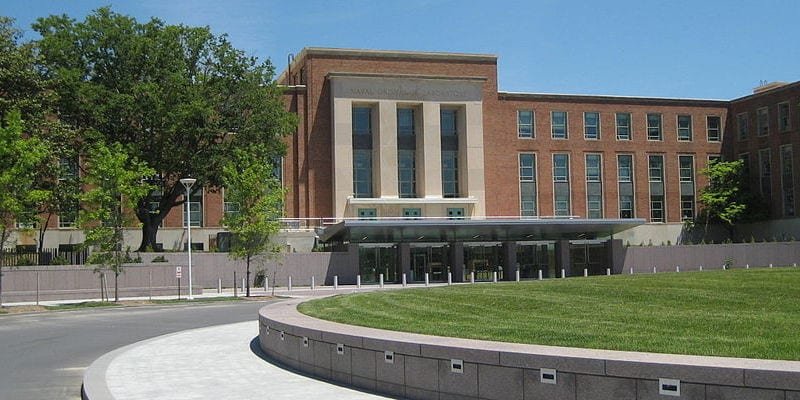AI Research
Artificial intelligence accelerates drug discovery and reduces animal testing

1. Artificial intelligence is cutting preclinical development timelines from more than three years to under two years.
2. The Food and Drug Administration now supports validated computational models as part of regulatory submissions.
On September 2, Reuters reported that the United States Food and Drug Administration is promoting artificial intelligence platforms that simulate drug safety and efficacy. Historically, preclinical testing averaged 42 months, but new in-silico methods have produced first-in-human candidates in 18 months. This represents a reduction of more than 50 percent in development time, which in a field where each new drug costs over two billion dollars is a striking shift. Some contract research organizations already earn more than 200 million dollars a year from non-animal models, showing that adoption is growing rapidly. Methods include computational absorption, distribution, metabolism, and excretion models alongside toxicity predictions. Regulators continue to require human trials but now accept validated computational packages as part of the dossier. That flexibility could reduce animal testing significantly, addressing ethical concerns while accelerating progress. For oncology programs in particular, moving candidates into patients sooner may improve survival by bringing novel mechanisms forward. Rare-disease groups are also watching closely, since smaller populations often cannot sustain long, expensive preclinical phases. Physicians may benefit from a broader pipeline of experimental therapies reaching phase 1 studies. Economically, faster development can allow more “shots on goal,” increasing the probability that at least some programs succeed. If scaled, artificial intelligence could change not only speed but also diversity of the therapeutic landscape.
Image: PD
©2025 2 Minute Medicine, Inc. All rights reserved. No works may be reproduced without expressed written consent from 2 Minute Medicine, Inc. Inquire about licensing here. No article should be construed as medical advice and is not intended as such by the authors or by 2 Minute Medicine, Inc.
AI Research
Promising Artificial Intelligence Stocks To Watch Now – September 13th – MarketBeat
AI Research
Denzel Washington Rejected This Sci-Fi Box Office Hit About Artificial Intelligence

For most of his legendary career, Denzel Washington has been able to call his tune. Studios are eager to be in business with him, and it certainly helps his cause that he enjoys making commercial films from time to time (as evidenced by his “Equalizer” movies). So, post-stardom, if he regrets making or not making a film, he only has himself to blame.
Personally, even though Denzel Washington is my favorite living actor, I do think he’s made some mistakes over the years. The formula thriller “The Bone Collector” was limp material that confined him to a bed for most of the movie, while the hospital hostage drama “John Q” was formulaic pap. And I have no idea what he was thinking when he signed on to star opposite two of our most annoying living actors (Jared Leto and Rami Malek, both of whom inexplicably have Oscars) in the serial killer thriller “The Little Things.”
But what about Washington? Does he have any regrets? The two-time Oscar winner is generally pretty happy with how his career has turned out, though there are some opportunities that, in retrospect, he wishes he’d leapt on. However, that does not include the Will Smith hit that pondered the potential pitfalls of a future where artificial intelligence is an essential part of human life.
Denzel was worried about the CGI of I, Robot
In a 2004 interview with Phase9 pegged to the release of Tony Scott’s “Man on Fire” (one of the director’s finest films), Washington was asked if there were any roles to which he regretted saying, “No thanks.” “The lead in ‘The Passion of the Chris,'” joked Washington (the movie was doing blockbuster business at the time of the interview). He then turned serious and said, “The Brad Pitt role in ‘Se7en.'” Amazingly, Sylvester Stallone also turned this part down.
But with the summer of 2004 approaching, Washington noted, “I was also recently offered ‘I Robot,’ but I was worried about the robots, if they got them wrong. Actually, I would have done it, but it came down to a choice between that movie and ‘The Manchurian Candidate.'” While Alex Proyas’ adaptation of Isaac Asimov’s sci-fi book is not without merit, Washington likely would’ve found himself getting paid very well to make a movie undone in part by studio interference. As such, I’m grateful that he instead teamed up with the great Jonathan Demme to make a severely underrated adaptation of Richard Condon’s novel (which had already formed the basis for a stone-cold classic from John Frankenheimer in 1962).
Eight years after this interview, Washington would express regret at turning down the lead role in Tony Gilroy’s “Michael Clayton.” As he told GQ, “With ‘Clayton,’ it was the best material I had read in a long time, but I was nervous about a first-time director, and I was wrong. It happens.” I would absolutely love to see the Denzel Washington version of “Michael Clayton,” but George Clooney certainly aced the assignment. As for “I, Robot,” I just wish Alan Tudyk would get more credit for being the best thing in Proyas’ movie.
AI Research
Love and Artificial Intelligence – cbsnews.com
-

 Business2 weeks ago
Business2 weeks agoThe Guardian view on Trump and the Fed: independence is no substitute for accountability | Editorial
-
Tools & Platforms1 month ago
Building Trust in Military AI Starts with Opening the Black Box – War on the Rocks
-

 Ethics & Policy2 months ago
Ethics & Policy2 months agoSDAIA Supports Saudi Arabia’s Leadership in Shaping Global AI Ethics, Policy, and Research – وكالة الأنباء السعودية
-

 Events & Conferences4 months ago
Events & Conferences4 months agoJourney to 1000 models: Scaling Instagram’s recommendation system
-

 Jobs & Careers3 months ago
Jobs & Careers3 months agoMumbai-based Perplexity Alternative Has 60k+ Users Without Funding
-

 Podcasts & Talks2 months ago
Podcasts & Talks2 months agoHappy 4th of July! 🎆 Made with Veo 3 in Gemini
-

 Education3 months ago
Education3 months agoVEX Robotics launches AI-powered classroom robotics system
-

 Education2 months ago
Education2 months agoMacron says UK and France have duty to tackle illegal migration ‘with humanity, solidarity and firmness’ – UK politics live | Politics
-

 Podcasts & Talks2 months ago
Podcasts & Talks2 months agoOpenAI 🤝 @teamganassi
-

 Funding & Business3 months ago
Funding & Business3 months agoKayak and Expedia race to build AI travel agents that turn social posts into itineraries





